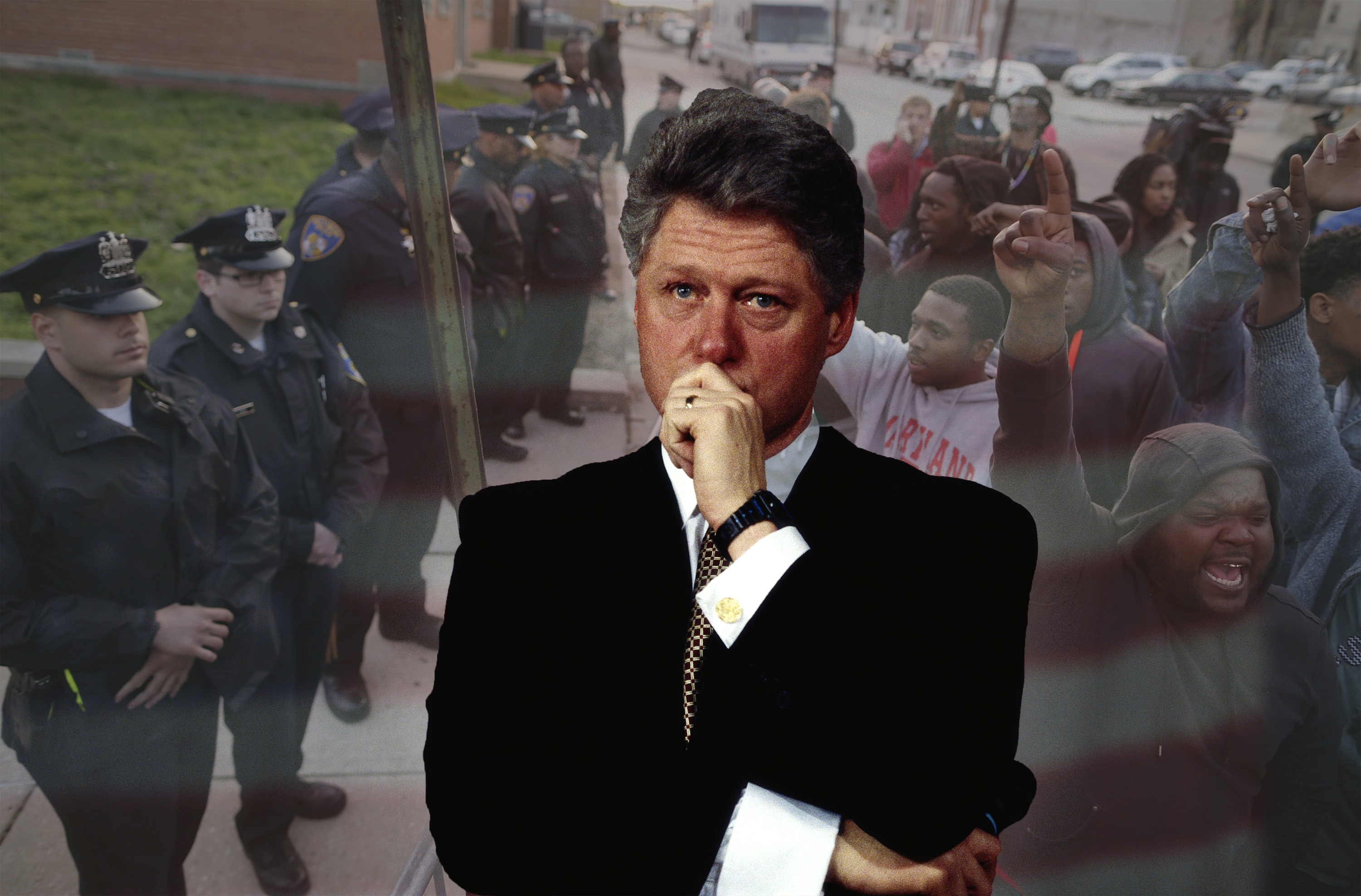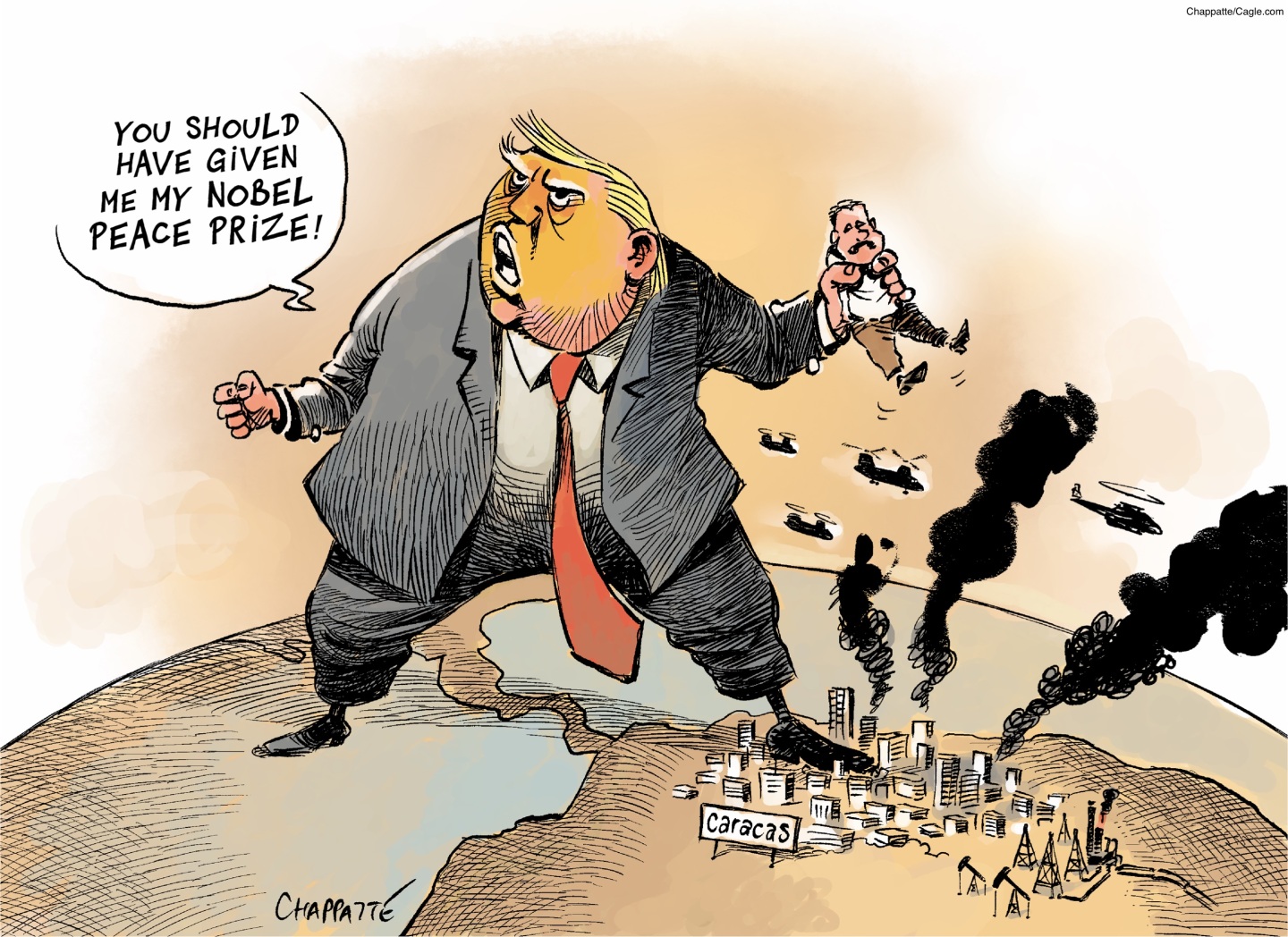Why Democrats deserve a chunk of the blame for Baltimore's anguish
The party once desperately wanted to appear tough on drug crime. Baltimore is still paying the price.


“There is something profoundly wrong when African American men are still far more likely to be stopped and searched by police, charged with crimes, and sentenced to longer prison terms than are meted out to their white counterparts,” Hillary Clinton said Wednesday. “There is something wrong when a third of all black men face the prospect of prison during their lifetimes. And an estimated 1.5 million black men are "missing" from their families and communities because of incarceration and premature death.”
Profoundly, brutally, incomprehensiby wrong. So obviously wrong. And yet, until recently, mainstream Democrats — especially Democratic governors who came of age politically during the turbulence of the crack epidemic in the 1980s, those Democrats who (directly or indirectly) encouraged the stigmatizing of welfare recipients when speaking to white, working class voters — wrote and sold the policies that recruited the parade of horribles that Secretary Clinton brought up. They didn't do so maliciously; President Clinton's policy advisers will point to a dozen reasons outside of politics when confronted with evidence that their war on crime did not in and of itself reduce crime, and in fact, may have exacerbated tensions between poor people, black people, and the police.
A few small examples:
The Week
Escape your echo chamber. Get the facts behind the news, plus analysis from multiple perspectives.

Sign up for The Week's Free Newsletters
From our morning news briefing to a weekly Good News Newsletter, get the best of The Week delivered directly to your inbox.
From our morning news briefing to a weekly Good News Newsletter, get the best of The Week delivered directly to your inbox.
1. Under Democrats, it became much harder for men and women convicted of felony drug crimes to return to their families after prison. Why? Because they were barred from public housing, which happened to be where their families lived. The effect on drug use in the projects was marginal; the effect on intact families was devastating. In 1996, it became illegal in most states for people with felony drug offenses to receive welfare benefits.
What type of drug offense merits a felony charge? Lots of them, but here’s a simple one: possess heroin in any amount, and you’ve got a felony charge. Any amount of heroin.
2. Democrats promoted data-driven policing as a way to ensure the efficiency of police tactics, applying a technocratic gloss to a profession that doesn’t lend itself naturally to metrics. But that simply increased the pressure to juke the stats, which lowered the threshold for petty arrests, empowering the police to be more aggressive, and pulling apart the unofficial lines that more or less kept police brutality from exploding in cities like Baltimore. (David Simon makes a good case that Martin O’Malley’s political aspirations were unkind to his city, and his CitiStat program was easily manipulated to make him look good.)
3. Democrats were reluctant to take on the NRA at crucial points, institutionally failing to back up a focus on gun violence (which seems to work to reduce crime rates) with the political will necessary to pass legislation making it easier to track guns and reduce the available stocks of ammunition.
A free daily email with the biggest news stories of the day – and the best features from TheWeek.com
4. Many Democrats supported the prison building boom, and had no problem with a policy that jailed people for non-violent drug offenses, took away their property, and then prevented them from using their family’s concerns as a mitigating factor for their sentences. An entire cohort of young black men went to jail for not being violent, and then were released, having been subject to the violence of a prison system, for no real good reason at all, given how inoffensive their crimes were.
In retrospect, we can find the justifications that Clinton, Vice President Biden, and others gave in 1994, when the major crime bill was signed into law, and some make sense.
None of these policy changes can account for the structural factors that have kept American inner cities looking like movie war zones. The difference in the way that rich and poor experience life is astonishing, from school quality to health care access to daily stress levels to the quality of the environment to job opportunities.
But policing, as an instrument of the government’s apparatus of social control, can itself be controlled, through policy. And it’s here that Democrats, generally, profoundly miscalculated the risks and benefits of being seen as tough on drug crime.
Marc Ambinder is TheWeek.com's editor-at-large. He is the author, with D.B. Grady, of The Command and Deep State: Inside the Government Secrecy Industry. Marc is also a contributing editor for The Atlantic and GQ. Formerly, he served as White House correspondent for National Journal, chief political consultant for CBS News, and politics editor at The Atlantic. Marc is a 2001 graduate of Harvard. He is married to Michael Park, a corporate strategy consultant, and lives in Los Angeles.
-
 5 hilariously slippery cartoons about Trump’s grab for Venezuelan oil
5 hilariously slippery cartoons about Trump’s grab for Venezuelan oilCartoons Artists take on a big threat, the FIFA Peace Prize, and more
-
 A running list of everything Trump has named or renamed after himself
A running list of everything Trump has named or renamed after himselfIn Depth The Kennedy Center is the latest thing to be slapped with Trump’s name
-
 Do oil companies really want to invest in Venezuela?
Do oil companies really want to invest in Venezuela?Today’s Big Question Trump claims control over crude reserves, but challenges loom
-
 The billionaires’ wealth tax: a catastrophe for California?
The billionaires’ wealth tax: a catastrophe for California?Talking Point Peter Thiel and Larry Page preparing to change state residency
-
 Bari Weiss’ ‘60 Minutes’ scandal is about more than one report
Bari Weiss’ ‘60 Minutes’ scandal is about more than one reportIN THE SPOTLIGHT By blocking an approved segment on a controversial prison holding US deportees in El Salvador, the editor-in-chief of CBS News has become the main story
-
 Has Zohran Mamdani shown the Democrats how to win again?
Has Zohran Mamdani shown the Democrats how to win again?Today’s Big Question New York City mayoral election touted as victory for left-wing populists but moderate centrist wins elsewhere present more complex path for Democratic Party
-
 Millions turn out for anti-Trump ‘No Kings’ rallies
Millions turn out for anti-Trump ‘No Kings’ ralliesSpeed Read An estimated 7 million people participated, 2 million more than at the first ‘No Kings’ protest in June
-
 Ghislaine Maxwell: angling for a Trump pardon
Ghislaine Maxwell: angling for a Trump pardonTalking Point Convicted sex trafficker's testimony could shed new light on president's links to Jeffrey Epstein
-
 The last words and final moments of 40 presidents
The last words and final moments of 40 presidentsThe Explainer Some are eloquent quotes worthy of the holders of the highest office in the nation, and others... aren't
-
 The JFK files: the truth at last?
The JFK files: the truth at last?In The Spotlight More than 64,000 previously classified documents relating the 1963 assassination of John F. Kennedy have been released by the Trump administration
-
 'Seriously, not literally': how should the world take Donald Trump?
'Seriously, not literally': how should the world take Donald Trump?Today's big question White House rhetoric and reality look likely to become increasingly blurred
